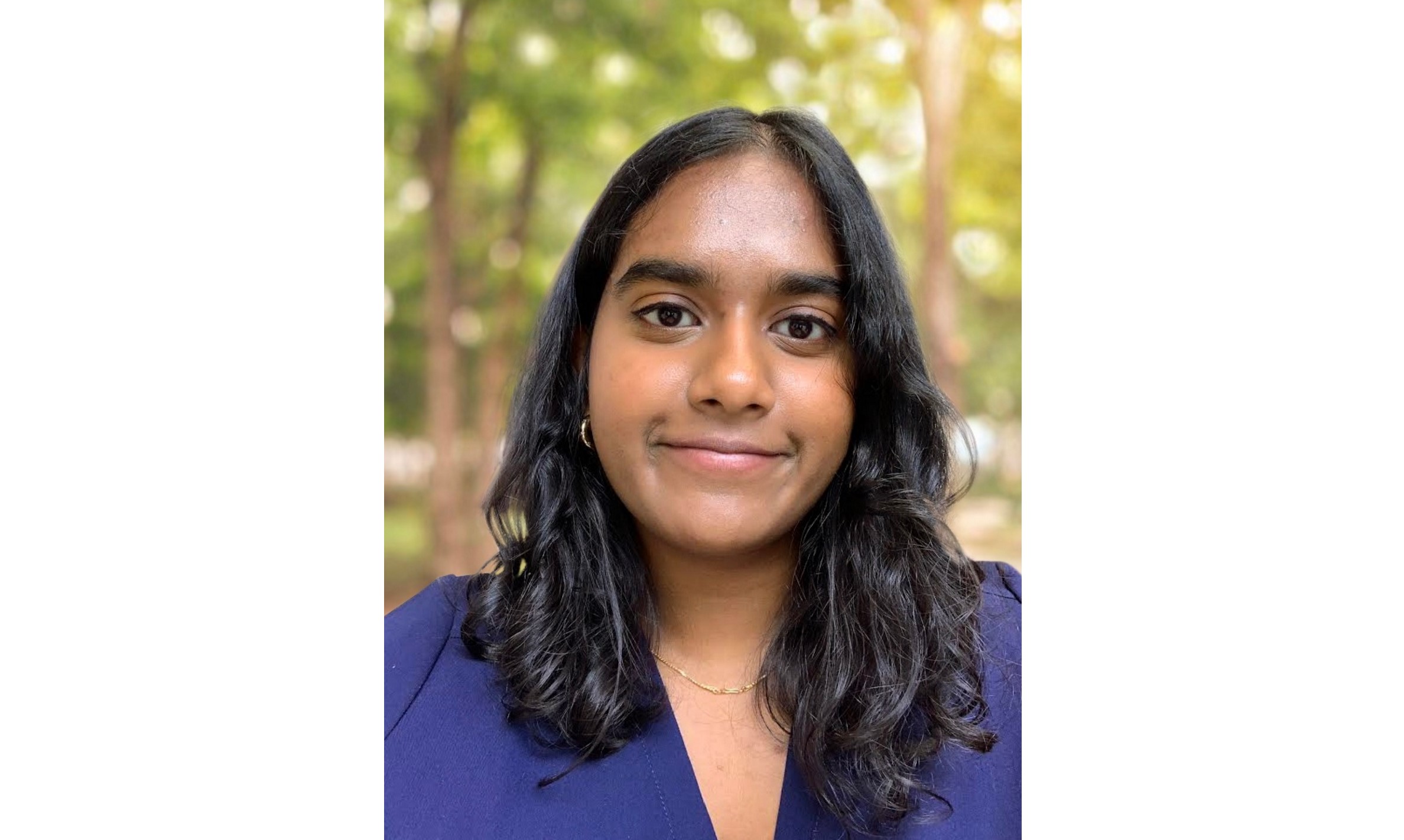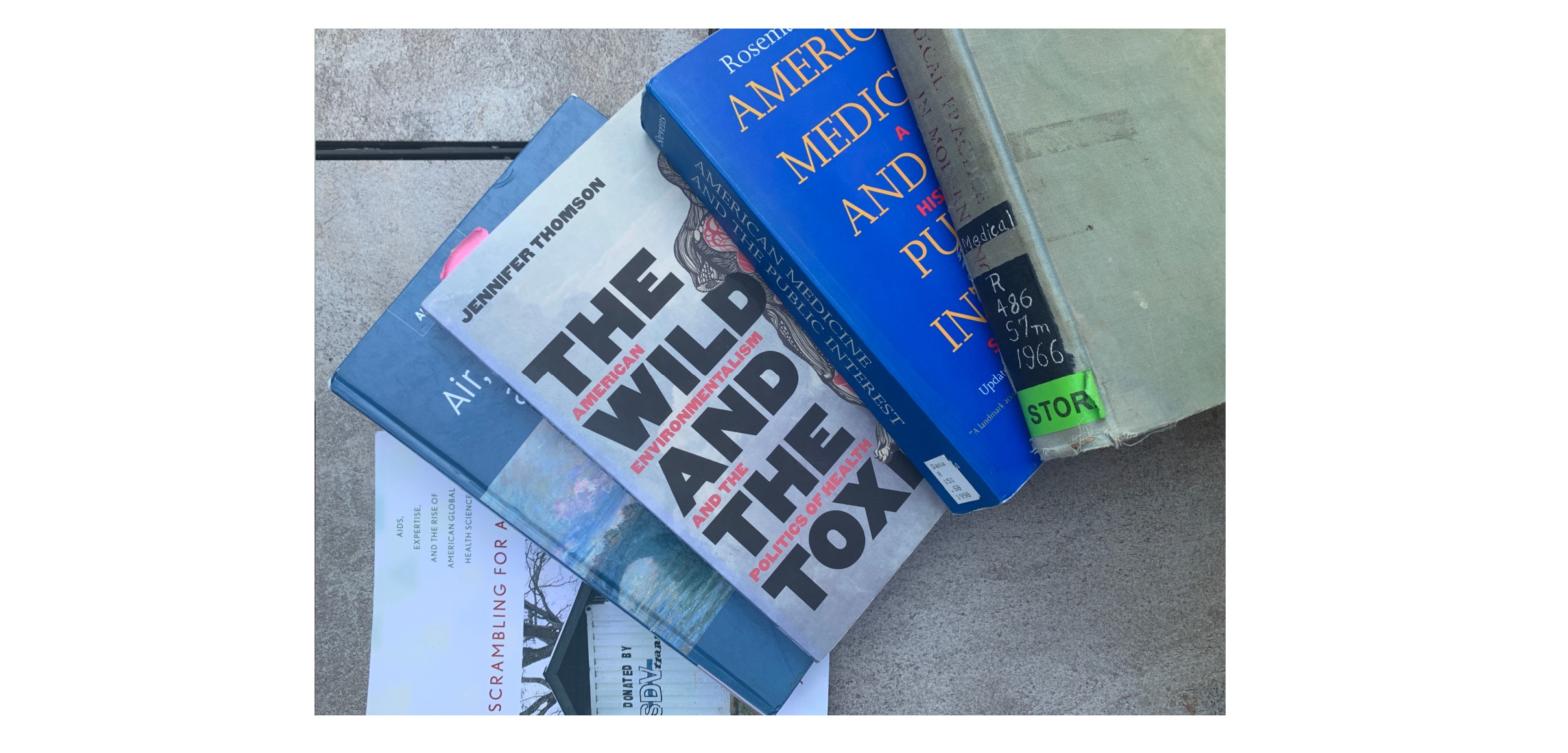
Dhivya Arasappan ('24), a Health and Societies and Biology double major, conducted research on "climate medicine" and how healthcare providers are responding to the health impacts resulting from climate change. Dhivya was mentored by Dr. Andi Johnson (Department of History and Sociology of Science), and this research was supported by the College Alumni Society Undergraduate Research Grant.
My research utilizes historical and anthropological methods to understand and map the emergence of “climate medicine” as a field and understand, more broadly, the “medicalization” or institutionalization of climate change within academic medicine. This is traced through medical school curricula, the creation of new academic institutions and centers, wide-reaching global consortiums, research journals, and climate and health fellowships and training programs, for example. To some, the connection between climate change and human health seems evident and inescapable, but this has not always been the case, as noted by historian Jennifer Thomson in her book The Wild and the Toxic: Health and American Environmental Politics, which I read this summer. For the past three months, I’ve been focusing on the ethnographic portion of my project, which involved conducting semi-structured, open-ended interviews with participants to learn more about how healthcare providers are responding to climate change and its health impacts. As part of the research, I also attended the 5th Clinical Climate Change Conference at the Icahn School of Medicine at Mount Sinai to learn about the current climate and health research landscape and future directions.
When embarking on my senior thesis project, I knew I was interested in two things—climate change and health. When looking back on my coursework from the past three years, I realized that climate change has been present all throughout my academic work. In my freshman seminar, Water in the Middle East, we explored the fragility of natural ecosystems and how changing climate and weather patterns can put millions at risk. I had the opportunity to think and write about climate resilience, health and air pollution in Ulaanbaatar through my writing seminar on Severe Climate Change & its Impact on Mongolia. Combined with my interest in history and health as a Health and Societies major, I became curious about the framing of climate change as a health issue and how health professionals have entered the conversations and are working on issues of education reform to incorporate climate change material, advocacy, climate, and health research as well as healthcare resilience and sustainability.

Moreover, the relationships I built throughout my research this summer, especially with my advisor, Dr. Andi Johnson, have been invaluable. The wonderful thing about research is that there’s always an opportunity to work with and learn from other faculty, students, and researchers in the field. Working with Dr. Johnson helped me understand the research process, verbalize and zoom into my research question, and troubleshoot any problems or challenges I encountered. Our conversations served as a sounding board for me to think through ideas and better understand interviewing techniques and what goes into writing an interview guide. In our discussions, I learned more about post-graduate training and the research landscape in this discipline. Additionally, within the Penn community, library staff like David Azzolina have been helpful in finding relevant and fascinating primary and secondary literature to provide context and support for my project.
I’ve also strengthened crucial research skills by identifying an area of interest and gaps in the literature, narrowing down the central research questions, finding specific primary and secondary sources, and analyzing and synthesizing all of this information. The process has been wonderfully challenging, occasionally frustrating, and always intellectually stimulating. I’ve learned so much about myself in terms of how I think, process information from a multitude of sources, and put the puzzle pieces together. I have also developed more concrete skills and experiences in formulating a research question, teaching myself how to use qualitative analysis software like NVivo, conduct semi-structured, open-ended interviews, and conduct literature reviews. One of my biggest takeaways from this project and further reflection on what drew me to the topic of climate change and health is that it’s important to me to work on climate change and related issues as part of my future career, wherever it may take me.
The chance to see a research project through from the early days of conceptualization to its very end is fascinating. Even more so when it’s an opportunity for you to harness your innate curiosity to understand what the puzzle pieces even are and how they might fit together—I know if offered the chance to do it all again, I would say yes every time. - Dhivya Arasappan
Interested in reading more first-hand accounts about undergraduate research? Check out the other experiences featured on our Student News Page and Social Media!
Related Articles
Penn alumnus named 2025 Samvid Scholar
11/20/2024
The Importance of Community in Research
11/18/2024
Seyoon Chun ('26), a History major, conducted public health research under the mentorship of Dr. Andy Tan (Department of Communication) on how tobacco companies target members of the LGBT community. This research was supported by the Penn…
Penn fourth-year Om Gandhi is a 2025 Rhodes Scholar
11/17/2024
Penn fourth-year Om Gandhi, from Barrington, Illinois, has been awarded a 2025 Rhodes Scholarship, which funds tuition and a living stipend for graduate study at the University of Oxford in England. He is among 32 American Rhodes Scholars, and an…